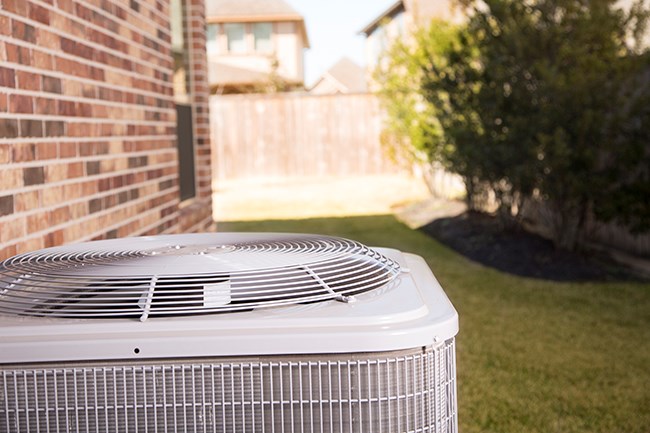This regular column on tips to live more sustainably comes from the 52 Weeks Climate Action Challenge. The challenge was created by Laurel Hood and Sherri Jackson. Hood is a retired Collingwood Collegiate Institute teacher, and Jackson is a writer and speaker, and ran as the Green Party’s candidate for the area in the last federal election. Both are climate activists.
*****************************
A few years ago, my family was lucky enough to do a year-long exchange in
Australia. We left Toronto in mid-winter, when the temperature was -25c. Thirty-six hours later, we arrived in Brisbane in mid-summer, to a sweltering 36 degrees, and near 100 per cent humidity.
Despite the heat, we were surprised to discover our house didn’t have any air conditioning. Nor did most residences. The school didn’t have any either. If we’d had the option, the A/C would definitely have been on. But, without it, we had to find solutions. We spent a lot of time at the beach. We stood in front of the fan a lot! Closed our house up tight in the day, and opened it for a little breeze in the evening. Don’t get me wrong. It was hot. More than hot. Some days, unbearably hot.
These past few days here at home have been Australia hot. And when we’re not used to such intensity, out of habit we turn to simple ways to get relief. We turn on the air conditioner.
There’s an interesting article that Laurel found in The Guardian, called The Air Conditioning Trap: How Cold Air is Heating the World. It talks about how much energy is required to run air conditioners. Did you know that one small room air conditioner uses as much energy as four fridges? And a central air unit uses as much as 15 fridges? In a heatwave, at least 50 per cent of energy consumption goes to air conditioning.
There is a vicious circle at play: the warmer our climate gets, the more we use air conditioning to mitigate it, which uses more energy, creating more greenhouse gases, which makes our climate warmer…you get the picture.
This morning, it was 29 C, by 8:30 a.m. The temperatures today will reach 33, and tomorrow will be even higher. With the humidex, we’re hitting mid-40s. Heat warnings abound this week. So, we’re not going to tell you not to use your air conditioning, but, we’re going to ask you to consider where you could maybe rethink your A/C habits, and you can decide for yourself what’s doable for you.
The problem with A/C is that it disconnects us from what’s actually going on outside. You may not even realize opening your windows would have the same effect. How many of us work in offices where we need a sweater, while outdoors it’s so hot you could fry an egg on the sidewalk? It’s nonsensical and wasteful. So, as usual, we’re going to ask you to tune in to what’s going on around you, so you are acting with intention, not out of habit. We’re not asking you to make your life uncomfortable. Just how to make your choices more conscious.
Challenge 12: Adapt how you use the air conditioner, and work to avoid it altogether where possible.
At home, keep your windows closed and the blinds down or curtains drawn to prevent heat from entering your house during the hottest part of the day. Be conscientious about keeping outside doors closed, just like you would in the winter. You may be surprised by how well this works. It may even work well enough to avoid needing the A/C.
In the evening, take a look at the overnight weather forecast. If the humidity is low and the temperature is expected to drop below your set house temperature, turn off the A/C and open all your windows. Example: Look for a temperature of say 20 that “feels like” 20 or less.
Where you can, put on external blinds or use curtains on your windows to keep your house cooler this summer. Invest in thermal drapes (good) or add exterior blinds, like Coolaroo (better). Or add exterior blinds and plan to upgrade your home’s insulation/windows (best).
Consider how cool is cool enough. If your house is colder in the summer than it is warmer in the winter, you could balance that out. For example, if you keep your house at 22 in the winter, but you’re cooling it to 18 in the summer, does that make sense?
Don’t underestimate the power of a good fan. Properly situated fans can draw hot air out of a room, and ceiling fans can draw cold air up from the floor so it can circulate.
You can also affect changes at work. Ask if the temperature can be raised a few degrees, instead of consistently sub-Arctic. See if the A/C can be turned off on days where it’s under, say, 25 degrees outside.
We do have options beyond just flipping the A/C switch and carrying on as if life is one long climate-controlled season. If you’re inside on a hot day and you feel like you need long sleeves, your A/C is too cold. If your glasses fog up when you go outside, your A/C is too cold. If it takes you 10 minutes to warm up, your A/C is too cold. So stay in touch with what’s really going on around you, and respond accordingly. Stay cool folks, and enjoy the dog days of summer! All too soon we’ll be shovelling!
Note: Thanks to gardener-extraordinaire Helen, for the tip from last week’s article: if you’re planting trees, make sure you give them lots of water so they thrive in this heat!
*************************



